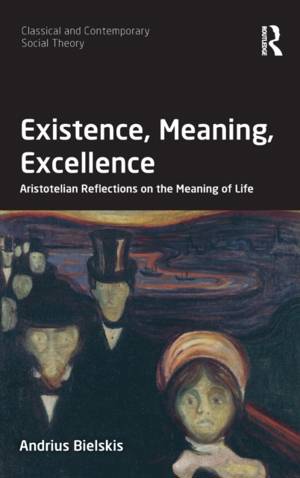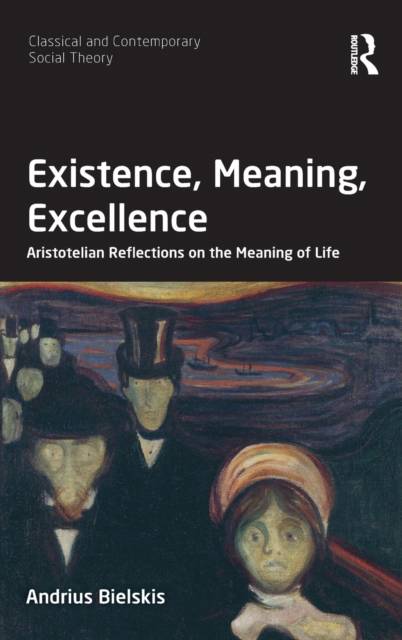
- Afhalen na 1 uur in een winkel met voorraad
- Gratis thuislevering in België vanaf € 30
- Ruim aanbod met 7 miljoen producten
- Afhalen na 1 uur in een winkel met voorraad
- Gratis thuislevering in België vanaf € 30
- Ruim aanbod met 7 miljoen producten
Omschrijving
This book addresses the 'perennial' question of the meaning of life from the point of view of a novel interpretation of Aristotle's teleology. Beginning with the premise that at the core of modernity and modern moral imagination are the entropy of meaning and the sense of meaninglessness, the author critically engages with the work of the post-war existentialists, chiefly that of Albert Camus and Martin Heidegger, to argue that their analyses are unconvincing and that the question of the meaning of being should therefore be approached using different assumptions, based on the notion of flourishing life. From this Aristotelian outlook, Existence, Meaning, Excellence employs Alasdair MacIntyre's critique of modernity, together with his conceptions of practice and the narrative unity of life and tradition to provide a novel philosophical account of existence, meaning and excellence - an account which is used to contribute to debates (between Kantian and Nietzschean perspectives) on the nature of art and genius, with Mozart's genius being used by way of illustration.
A fascinating and powerfully argued engagement with existentialist thought that draws on the 'virtue' tradition to explore questions of meaning, as well as wider questions within philosophy, this book will appeal to philosophers and social theorists with interests in existentialism, moral philosophy and accounts of 'the good' based on the notions of human flourishing.
Specificaties
Betrokkenen
- Auteur(s):
- Uitgeverij:
Inhoud
- Aantal bladzijden:
- 132
- Taal:
- Engels
- Reeks:
Eigenschappen
- Productcode (EAN):
- 9781138213906
- Verschijningsdatum:
- 30/10/2017
- Uitvoering:
- Hardcover
- Formaat:
- Genaaid
- Afmetingen:
- 156 mm x 234 mm
- Gewicht:
- 376 g

Alleen bij Standaard Boekhandel
Beoordelingen
We publiceren alleen reviews die voldoen aan de voorwaarden voor reviews. Bekijk onze voorwaarden voor reviews.











